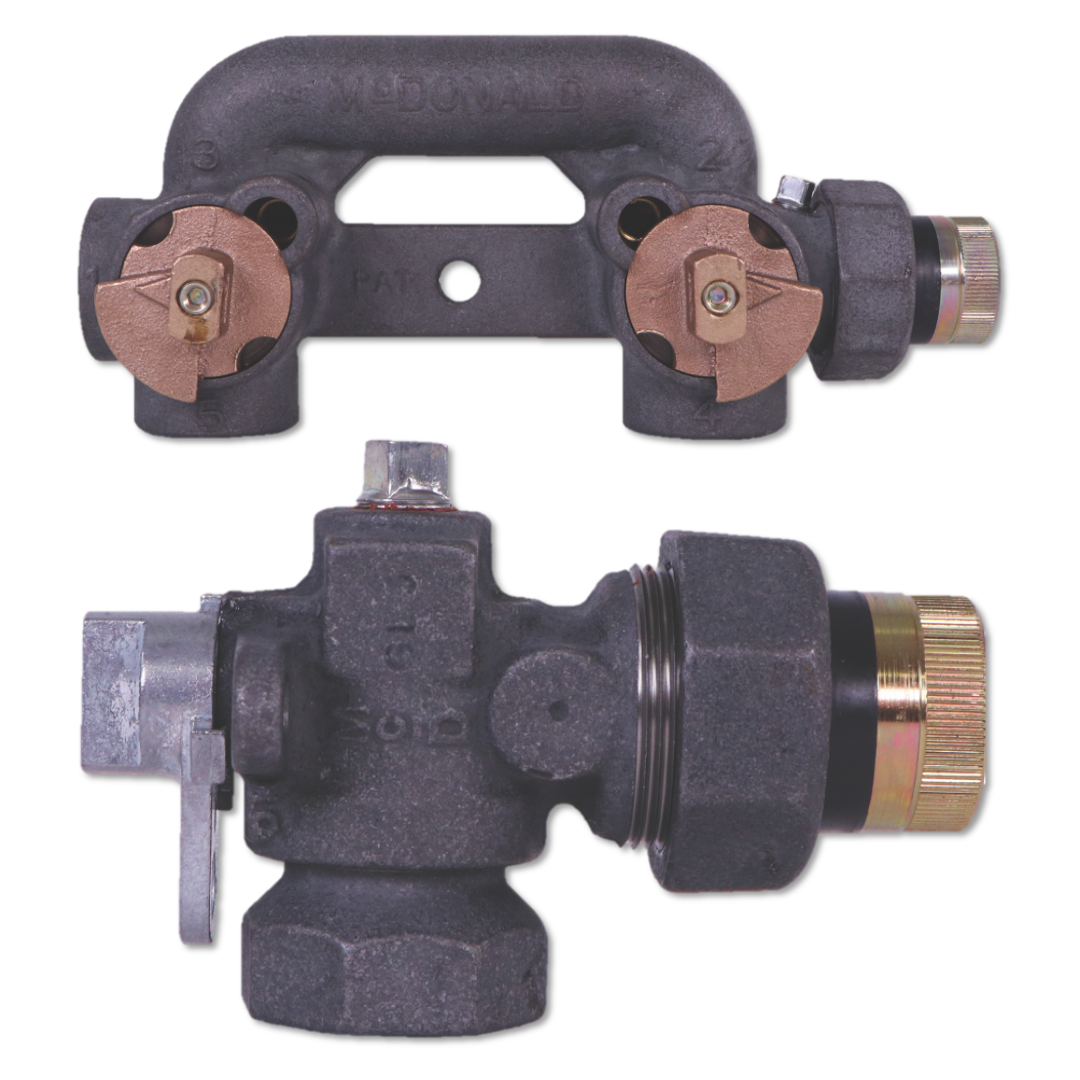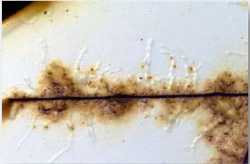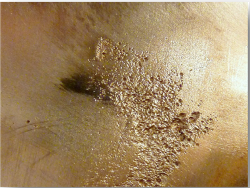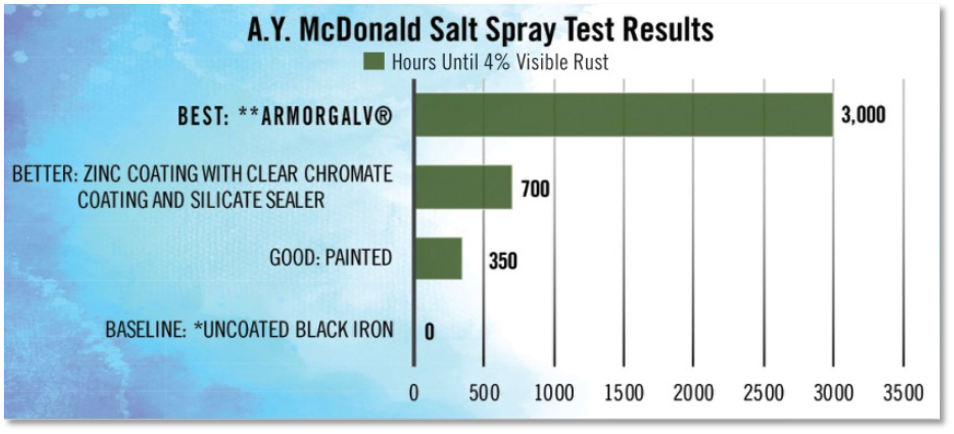Corrosion Protection Just Went From Better to Best

Corrosion Protection Just Went From Better to Best


A.Y. McDonald is excited to share an exclusive coating that raises the bar of corrosion protection to a whole new level by introducing ArmorGalv®. It’s a game changer! This thermal-diffused zinc coating, along with a topcoat sealer, creates a bond with the casting that provides corrosion resistance for parts made of steel and iron. The process of applying thermal-diffused coatings is standardized in accordance to ASTM A 1059 Standard Specification for Zinc Alloy Thermo-Diffusion Coatings (TDC) on steel fasteners, hardware, and other products. ArmorGalv® also comes with the following benefits:
- Environmentally friendly
- Uniformly applied on all external and internal surfaces to create a bond with the casting
- Commonly used in marine and automotive environments, as well as electrical utility applications
- Provides excellent adhesion properties for paint
- Paint can be applied over ArmorGalv® for additional corrosion benefits
Based on the American Society of Testing and Materials (ASTM) standards, multiple tests can be used to measure corrosion. However, the Salt Spray Test per ASTM B117 is the most common. To effectively conduct this test, materials must be placed in a salt fog chamber. From there, a 5% NaCl solution is atomized at 95°F with a neutral pH or 6.5-7.2. The parts are kept continuously in the fog without touching any other metallic or corrosive material. Materials are checked periodically for rust or decay with the test duration determined by the manufacturer.
A.Y. McDonald performed salt spray testing with the ArmorGalv® coating applied to cast iron rough castings. In accordance with ASTM A 1059, the thickness of the coating applied was designated at Class 25 (0.98 mils thick). The sample below was tested to 3000 hours of salt spray exposure in accordance to the ASTM B117 Standard Practice for Operating Salt Spray (Fog) Apparatus.

**Test stopped at 3000 hours without failure
*Uncoated black iron will rust in 24 hours of less after initial exposure to salt spray environment
Due to the results, by creating sacrificial layers of iron and zinc alloys, parts can last in an A2LA accredited salt spray environment well over 3000 hours before red rust appears on the base material compared to 350 hours for other coatings.
In severe circumstances, when corrosion meets a natural gas distribution part, the lifespan of the product can go downhill. Knowing this, ample amounts of research and resources are put toward rectifying the industry-wide issue. A.Y. McDonald does our part by applying coatings to our products that reduce the effects of corrosion, especially with ArmorGalv®. In addition, we continue to take corrosion prevention seriously by performing tests such as the Salt Spray Test.
To learn more about how ArmorGalv® can enhance your next A.Y. McDonald natural gas product order, take the ‘ArmorGalv® Thermal-Diffusion Zinc Coating’ AYU course, reach out to our customer service department at 1-800-292-2737, or fill out a contact us form on aymcdonald.com.
